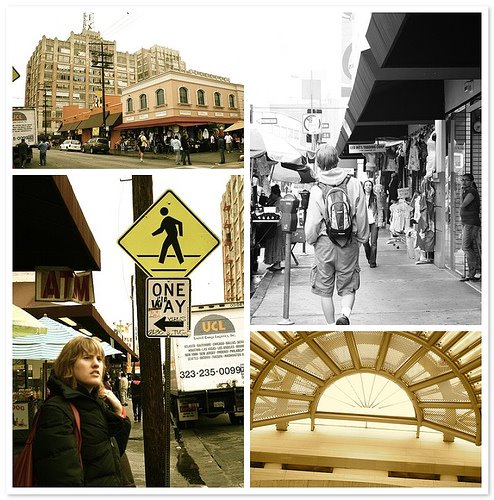
One thing that I like to do these days in to take some time to read when Mercy goes down for her afternoon nap. It is quite a precious time as I lie down next to her and listen to the rhythm of her breathing and the warmth of her little body as I drift into a new book. As Joseph and I have been struggling through decisions that we believe will shape our life vision and goals, I have been drawn to different books about faith and living in faith. I have a very old and worn copy of Fox's Book of Martyrs, which I believe either belonged to my grandfather or my great uncle, both who were men of faith and great learning. I have many times looked at the book and thought, "I really need to read that someday". As well, when I worked at the bookstore at Fuller, I would see different copies of the book and be drawn to pick them up and flip through them. I have always been curious about the early church saints and martyrs and this past week I decided to spend the time I have while Mercy naps reading the heavy, worn book in the hopes of bolstering my own faith.
I don't think I quite understood what I was getting into as I read the introduction about John Foxe, who was himself persecuted for writing his book chronicling the story of Christian martyrs from Stephen to his own contemporary time. As I have continued to read, I have found myself wrapping my arms around Mercy in a protective fashion in response to stories of men, women and children being tortured, starved, raped, falsely accused and murdered for simply stating that they believed in Christ and, often, refusing to give homage to other gods. Reading these accounts makes me ask two questions: 1) What kind of faith do I have when I feel like a "martyr" because of very shallow sacrifices I have made for God (and sometimes for my own sense of pride)? 2) How can a loving God allow His people to be abused in so many horrific ways when all they wanted to do was love and serve Him?
Now, I am an imaginative person and being thus, when I read these accounts, my mind wanders to the mental picture of the atrocity itself and I think, "what must that have felt like? Could I endure such a thing? Would I be able to stand strong in the face of such pain and oppression?". So many of the martyrs are said to have faced their deaths with such amazing fortitude and bravery. That is not something I think I could do. I think of stories I hear of modern-day martyrs and how far away I am from such sacrifice in my own life. In the moment that these people are being persecuted, does God shine on them so brilliantly that He takes away their physical pain? Does He show Himself merciful to those that love Him in a practical and physical way?
I have no pretty bow to wrap up this post. I am struggling with this just as I struggle with the inhumanity I read about that is present in our world today. I want to be willing to sacrifice all for my God, just as I want to be willing to come to the aid of those who are oppressed in this world, whether they know Christ or not. I pray that God would lead me to be bold, courageous and uniquely positioned to help the oppressed and forlorn.
I would love feedback as I am struggling to understand and come to grips with the reign of evil in the world when I know that there is a loving God who truly cares for every person He has created.



No comments:
Post a Comment